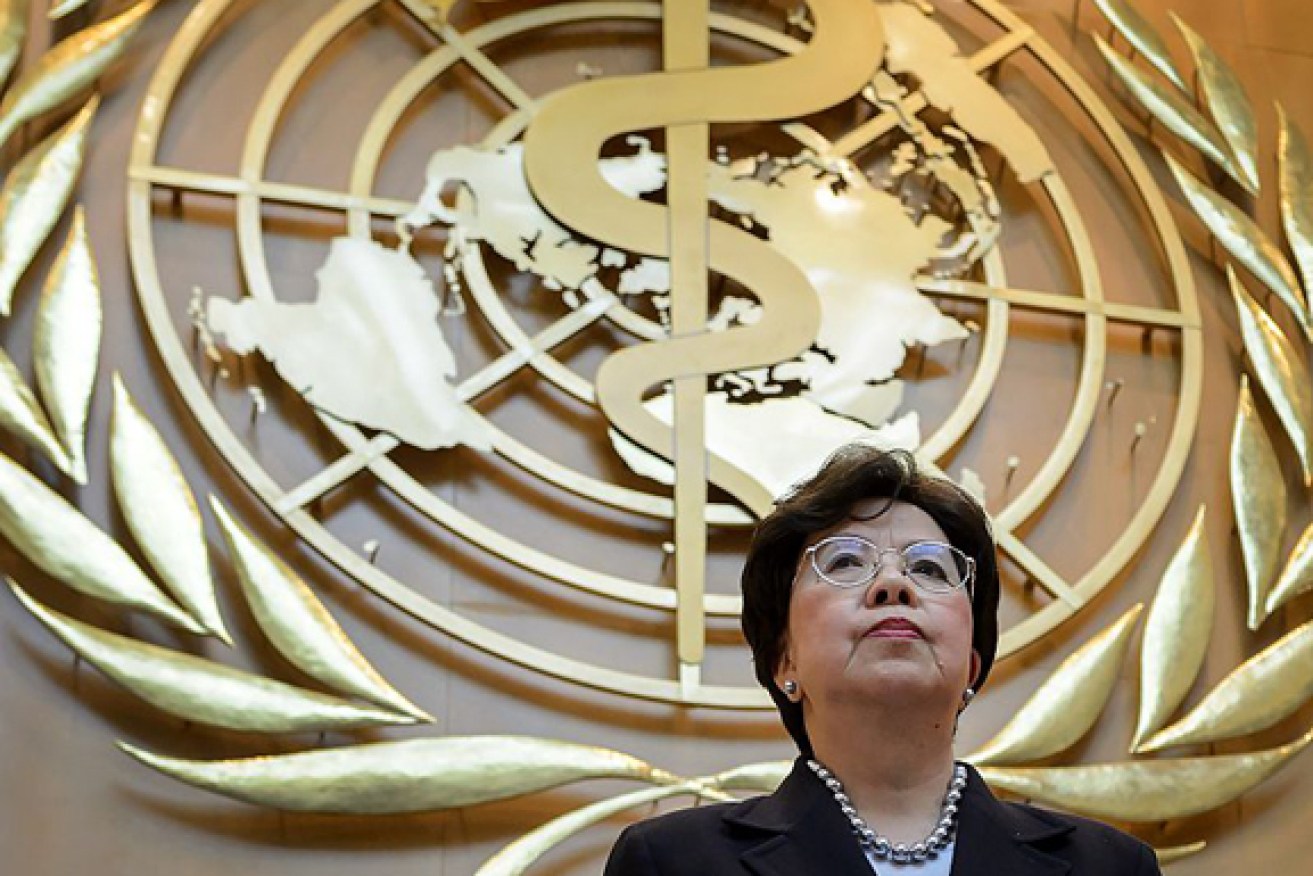UN declares new global health emergency

Getty
The United Nations health agency has declared the mosquito-borne Zika virus to be an international emergency.
World Health Organisation (WHO) director-general Margaret Chan called on Tuesday (AEDT) for a coordinated worldwide response to fight Zika, for which there is no treatment or vaccine.
“I am now declaring that the recent cluster of microcephaly and other neurological abnormalities reported in Latin America following a similar cluster in French Polynesia in 2014 constitutes a public health emergency of international concern,” Ms Chan said during a press conference in Switzerland.
• Q&A: ‘We must confront domestic violence’
• Anti-women group plans Australian meetings
• Planets, stars put on stellar show from outer space
The infection’s spread is an “extraordinary event and public health threat to other parts of the world”, Ms Chan said.
“A co-ordinated international response is needed to reduce the risk of further international spread.”
Last week, the WHO said as many as 4 million people could be infected by the “explosively” spreading virus, which has been linked to microcephaly, a birth deformity, in Brazil and has been detected across the Americas, South-East Asia, Africa and the Pacific.
The emergency designation was recommended by a committee of independent experts. It may help fast-track international action and research priorities. The WHO did not call for global restrictions on travel or trade.
Brazil has reported nearly 4000 suspected cases of microcephaly, in which infants are born with smaller-than-usual brains and skulls. A “strongly suspected”, though as yet not definitively proven, link has been established to Zika infection, according to the WHO director-general.

Zika and many other deadly viruses are spread by mosquitos. Photo: Getty
The only method of prevention currently available is the eradication of infected mosquitos and protection against bites, such as nets and repellent.
Queensland prepares for Zika
As the WHO warned of Zika’s global threat, a health council on Cape York has urged the local community to take steps to prevent the virus from taking hold.
There have been no transmissions of the virus in Australia, but the Apunipima Cape York Health Council told locals to take preventative action.
“We just decided to get some information out about this because we are a potential area for spread,” Dr Mark Wenitong told the ABC.
“We want to make sure everybody cleans up and does the things they can to prevent this starting in Cape York, particularly.”
Queensland is the only place in Australia where the Aedes type of mosquito, thought to be spreading the virus across the world, resides.
The history of the virus

The zirus started in Ugandan monkeys, WHO says. Photo: Getty
WHO’s director-general explained during a briefing last week that Zika was first discovered in a Ugandan monkey in 1947 and “slumbered” for years before beginning its ‘explosive’ spread in 2007.
“Its historical home has been in a narrow equatorial belt stretching across Africa and into equatorial Asia,” Ms Chan said.
“For decades, the disease, transmitted by the Aedesgenus of mosquito, slumbered, affecting mainly monkeys. In humans, Zika occasionally caused a mild disease of low concern.
“In 2007, Zika expanded its geographical range to cause the first documented outbreak in the Pacific islands, in the Federated States of Micronesia. From 2013-2014, 4 additional Pacific island nations documented large Zika outbreaks.
“The situation today is dramatically different. Last year, the virus was detected in the Americas, where it is now spreading explosively. As of today, cases have been reported in 23 countries and territories in the region.”
Travel risk

The virus is “strongly suspected” of causing microcephaly. Photo: Getty
Various official bodies, including the Australian Olympic Committee and the Australian Department of Foreign Affairs, have issued muted warnings to those considering travel to the Americas.
The 2016 Olympic Games will be held in Rio de Janeiro in August.
Australia’s olympic body warned women who might be pregnant at the time of the Games to reconsider attending.
While Brazil is the worst affected, Zika is thought to also be spreading in: Puerto Rico, Colombia, El Salvador, French Guiana, Guatemala, Haiti, Honduras, Martinique, Mexico, Panama, Paraguay, Suriname, Barbados, Bolivia, Ecuador, Guadeloupe, Saint Martin, Guyana, Cape Verde and Samoa.








